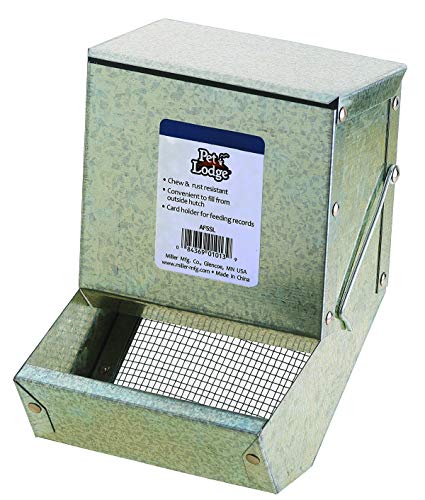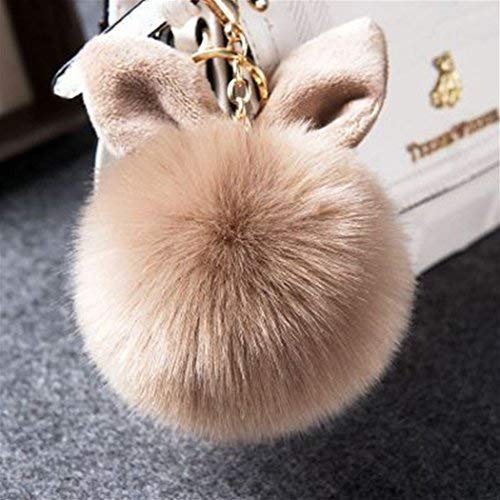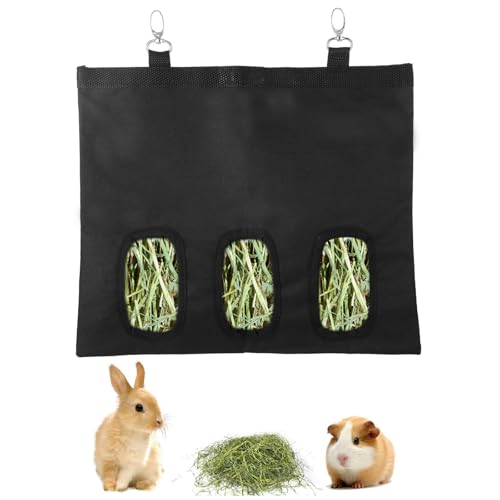You are using an out of date browser. It may not display this or other websites correctly.
You should upgrade or use an alternative browser.
You should upgrade or use an alternative browser.
How long do pellets last?
- Thread starter JG3
- Start date

Help Support Rabbit Talk Forum:
This site may earn a commission from merchant affiliate
links, including eBay, Amazon, and others.
KelleyBee
Well-known member
So, the fat. To start, I try to leave as much fat as possible on the carcass when processing. When cooking, I take about a tablespoon of the fat from the carcass, carefully melt in a skillet, then add the pieces of rabbit for searing and browning before either slow cooking or roasting the rabbit. The remainder of the fat I remove from the rabbit before browning and add it to a zip bag I keep in the freezer, thus this fat is frozen raw. Then, once the gallon sized zip bag is full, I render the fat for future cooking. There are a lot of videos and written blogs on the web teaching how to render fat. It can then be used any time fat is needed in cooking or baking. Animal fat is way better than crisco and margarine type stuff and more stable at higher temperatures than most oils used for cooking. once rendered, I store the fat in glass jars in the fridge. It lasts for months.Not too much of the rich stuff though, until I've learned what to do with all the fat...
I have an experiment running with Pemmican. For those who don't know, that is a mixture of shredded dehydrated meat covered with animal fat. In this case it is beef in tallow. Pemmican sometimes has oatmeal and fruit added. My experiment has oatmeal added. It is now 5 years old. It has been stored in the refrigerator all that time in an air tight plastic bag. It has shown no signs of spoiling, ie no mold growth, no discoloration, no odor.... It can then be used any time fat is needed in cooking or baking. Animal fat is way better than crisco and margarine type stuff and more stable at higher temperatures than most oils used for cooking. once rendered, I store the fat in glass jars in the fridge. It lasts for months.
KelleyBee
Well-known member
Is the meat cooked or raw?I have an experiment running with Pemmican. For those who don't know, that is a mixture of shredded dehydrated meat covered with animal fat. In this case it is beef in tallow. Pemmican sometimes has oatmeal and fruit added. My experiment has oatmeal added. It is now 5 years old. It has been stored in the refrigerator all that time in an air tight plastic bag. It has shown no signs of spoiling, ie no mold growth, no discoloration, no odor.
From the pic, it looks normal to me. The dust amount isn't bad, as I have gotten commercial feed with 50% grain dust as filler. I feed minimaly processed, organic, non GMO grain from a local business now. No dust at all! Very happy, cheaper too. If it happens to give your buns the sniffles, you can put the grain in a bucket with some water, stir it a little, and dig it back out. That way you can sneek some extra water into em. It will aid their digestion as well.Thoughts? Just purchased tonight. Ran my hand through the pellets and came up covered in dust. See attached photos. Is it normal to have a certain amount of dust in a feed bag regardless of brand?
Last edited:
Pemmican is always raw, but dehydrated.Is the meat cooked or raw?

$16.99
Pet Lodge® Steel Small Animal Feeder with Lid and Sifter Bottom | Cage Rabbit Feeder | Holds Several Days Worth of Food | 5 Inch
Duncan's Family Farm Store

$6.00
$24.00
Top Secret Restaurant Recipes: Creating Kitchen Clones from America's Favorite Restaurant Chains: A Cookbook
Windflower Bookstore

$19.99
$27.99
The Fast Metabolism Diet Cookbook: Eat Even More Food and Lose Even More Weight
Amazon.com

$24.38
$34.95
The Autoimmune Paleo Cookbook: An Allergen-Free Approach to Managing Chronic Illness (US Version)
GoodVibeBooks

$9.99
$19.95
The Paleo Diet Cookbook: More Than 150 Recipes for Paleo Breakfasts, Lunches, Dinners, Snacks, and Beverages
Kuleli Books

$9.99 ($3.33 / Count)
Springtime 3pcs Rabbit Fur Headbands for Women Girls Unique Faux Furry Hair Headband Soft Luxury Headwear Warm Hair Accessories
Chunxia Accessories

$9.99
The Lodge Cast Iron Cookbook: A Treasury of Timeless, Delicious Recipes
Amazon.com Services LLC

$51.99 ($26.00 / Count)
$57.99 ($29.00 / Count)
Qinyoung 2 Pcs 5 Pound Cage Rabbit Feeders Automatic Metal Trough Feeder with Lid Galvanized Steel Bunny Food Dispenser for Rabbits Chicken Guinea Pigs Ferrets and Other Small Animals
HouKonng

$14.71
$29.99
Fit Men Cook: 100+ Meal Prep Recipes for Men and Women―Always #HealthyAF, Never Boring
Amazon.com
The dust, also called fines, is normal for pellets. It comes primarily from them rubbing against each other during shipping and handling. If the pellets should become wet, they will fall apart. Like wood fuel pellets, all that holds the feed together is the knitting of the lignins. When wetted, the lignins expand and the knitting "unravels".From the pic, it looks normal to me. The dust amount isn't bad, as I have gotten commercial feed with 50% grain dust as filler. I feed minimaly processed, organic, non GMO grain from a local business now. No dust at all! Very happy, cheaper too. If it happens to give your buns the sniffles, you can put the grain in a bucket with some water, stir it a little, and dig it back out. That way you can sneek some extra water into em. It will aid their digestion as well.






















